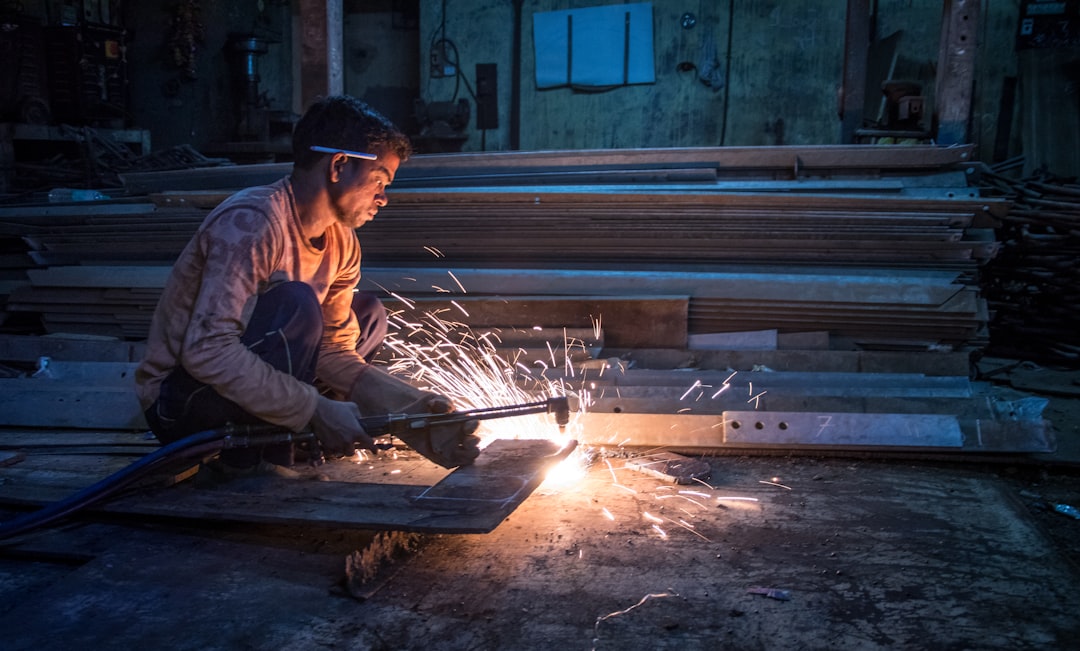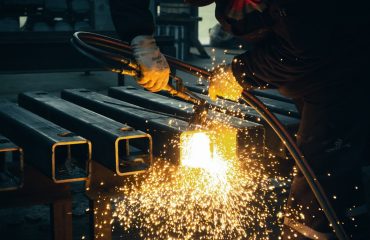The steel industry, a cornerstone of global infrastructure, is undergoing a dramatic transformation. Digitalization is no longer a futuristic concept but a crucial element for survival and growth. Digital steel platforms are emerging as the key enablers of this change, offering unprecedented levels of efficiency, sustainability, and profitability. This post delves into the leading trends shaping these platforms and their impact on the future of steel production.
1. AI-Powered Optimization: Precision and Efficiency in Steelmaking
Artificial intelligence (AI) is rapidly becoming a game-changer in steel production. AI-powered platforms analyze vast datasets from various stages of the process – from raw material sourcing to final product delivery – to identify inefficiencies and optimize operations. This includes predictive maintenance, optimizing energy consumption, improving product quality, and streamlining logistics. Machine learning algorithms can predict equipment failures, allowing for proactive maintenance and minimizing downtime. Furthermore, AI can optimize the chemical composition of steel, leading to higher-quality products with reduced material waste. The integration of AI-powered sensors throughout the production process provides real-time data, enabling immediate adjustments and preventing costly errors.
2. The Rise of the Digital Twin: Virtualizing the Steel Plant
The concept of a digital twin – a virtual replica of a physical asset or process – is gaining significant traction in the steel industry. Digital twins of steel plants allow engineers and operators to simulate various scenarios, test new processes, and optimize existing ones without impacting real-world operations. This virtual environment allows for the identification of bottlenecks, the testing of new equipment configurations, and the prediction of the impact of changes on the entire production process. The benefits extend to training, allowing employees to practice complex procedures in a safe and controlled digital environment. By combining digital twins with AI-powered analytics, steel companies can significantly reduce operational risks and improve overall efficiency.
3. Blockchain Technology: Enhancing Transparency and Traceability
Blockchain technology, known for its secure and transparent nature, is finding applications in enhancing the traceability and provenance of steel products. By recording every step of the steel production process on a blockchain, from raw material sourcing to the final delivery, companies can provide customers with complete transparency about the origin and quality of their steel. This is particularly crucial in industries with stringent quality and sustainability requirements, such as automotive and construction. Blockchain can also streamline supply chain management, improving efficiency and reducing the risk of fraud or counterfeiting. The immutable nature of blockchain records ensures data integrity and builds trust throughout the supply chain.
4. Sustainable Steelmaking: Digital Tools for a Greener Future
The steel industry is under increasing pressure to reduce its environmental footprint. Digital steel platforms are playing a crucial role in achieving this goal. By optimizing energy consumption, reducing waste, and improving resource efficiency, these platforms contribute to a more sustainable steel production process. Data analytics can identify areas for energy savings, while AI-powered algorithms can optimize the use of raw materials, reducing waste and minimizing environmental impact. Moreover, digital platforms facilitate the integration of renewable energy sources into steel production, further reducing carbon emissions. The shift towards a circular economy, where steel is recycled and reused, is also facilitated by digital traceability and efficient resource management systems.
5. Cybersecurity and Data Management: Protecting the Digital Steel Ecosystem
As steel plants become increasingly reliant on digital technologies, cybersecurity becomes paramount. Protecting sensitive data and ensuring the integrity of the digital platforms is crucial for maintaining operational efficiency and preventing disruptions. Robust cybersecurity measures, including data encryption, access control, and regular security audits, are essential to safeguard against cyber threats. Effective data management strategies are equally important, enabling companies to effectively store, analyze, and utilize the vast amounts of data generated by digital steel platforms. This includes implementing data governance policies and investing in advanced data analytics tools to derive valuable insights from the data collected.
The future of the steel industry is inextricably linked to the adoption and advancement of digital steel platforms. By leveraging AI, digital twins, blockchain, and sustainable practices, steel companies can achieve unprecedented levels of efficiency, sustainability, and profitability. However, addressing cybersecurity concerns and implementing robust data management strategies is equally critical for successful digital transformation in the steel industry.
SEO-Friendly Tags:
- Digital Steel Platforms
- Steel Industry 4.0
- AI in Steel Manufacturing
- Sustainable Steel Production
- Digital Transformation in Steel




